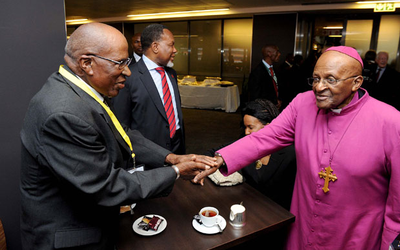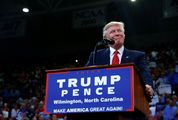Mandela’s style offers lessons to business
by Kuseni Dlamini
2013-12-11 05:53:31.0
NELSON Mandela’s legacy of exceptional leadership qualities remains a positive reference point worthy of emulation, not just in South Africa but the world at large. He was a well-rounded leader whose leadership philosophy and practice have application in all sectors of society, including — dare I say especially — in business.
Discourse on leadership will, henceforth, be incomplete without any reference to Mandela’s philosophy, style and accomplishments in leadership.
For business leaders, he was the epitome of values-based leadership underpinned by decisiveness and the ability to take others with him at crucial moments. The plethora of scandals in business and industry reflects a serious values deficit at the highest level of business leadership. This has resulted in a chronic and acute trust deficit for business by society.
This can and must rectified. South Africa’s business leaders can be a powerful force for good by differentiating themselves through Mandela’s style of leadership. Business schools around the world would be immensely enriched if they incorporated Mandela’s philosophy and method of leadership into their curriculums.
Since Thursday last week, South Africa has been at centre stage in global affairs. Having Mandela among us has given us the pulling power to coalesce the world around a common and shared discourse on peace, unity and reconciliation.
Mandela believed in justice, freedom and equality for all. South Africa has a golden opportunity to reflect and rededicate itself to a set of universal values that are unifying and energising to many across the world.
We need to cherish the ideal of a better world for all and refuse to accept that some among us should live inferior lives marked by huge deficits in dignity, respect, justice and freedom.
That would be one of the best ways of honouring Mandela.
This is a very rare moment for South Africa’s prominence and positive profiling in the mainstream spheres of global public opinion. It is an opportunity for South Africa to redefine and reinvent itself as a great and admired nation. This requires a clear commitment to a set of values that provides leadership and direction at a global level.
The outpouring of global solidarity and admiration for South Africa’s founding father is unprecedented in our lifetime. It is an outstanding epitome of the excellence that Mandela symbolised and lived.
His legacy will endure for generations. South Africa should be proud of itself for having produced such a global icon and statesman. Mandela is in death what he was in his lifetime — a unifier, reconciler and peacemaker par excellence.
South Africa matters because Mandela mattered in his lifetime as he matters in death. Nothing has united South Africa and the world more than the passing of our icon and founding president of a democratic and nonracial country.
This is a moment of sadness and glory for South Africa. It is a moment that has provided resounding feedback on what the world thinks and expects of this great nation. Mandela’s iconic stature and global statesmanship is second to none.
What he stood for is what the world wants and lacks. He led South Africa to a brave new world and country that was hitherto unimaginable even by some South Africans within and beyond his own party, the African National Congress.
The world suffers from a shortage of statesmanship as most world leaders tend at present to be driven by short-termism and narrow national and sectional interests that divide rather than unify. World leaders can do the world a big favour by using this moment of mourning Mandela to reflect on their own leadership styles and ask themselves how they could make the world a better place for all.
Building bridges and eradicating political, ideological, racial, tribal, religious, economic, social and other differences with others is what the world needs.
We need a brand of leadership that truly unites rather than divides people and nations for narrow political objectives.
We should refuse to accept conflict as an inevitable part of global and local politics.
Mandela showed us how unity and reconciliation can be made to prevail over hitherto irreconcilable differences between hitherto deeply divided racial groups.
I strongly believe that what he did can and must be done by present and future leaders to make the world a better place for all, as indeed it can and must be.
Hamba kahle Madiba! Lala ngoxolo.
• Dlamini is chairman of Times Media Group.

Archbishop Emeritus Desmond Tutu greets ANC veteran Andrew Mlangeni at the official memorial service for former president Nelson Mandela at the FNB Stadium in Johannesburg on Tuesday. Picture: GCIS
NELSON Mandela’s legacy of exceptional leadership qualities remains a positive reference point worthy of emulation, not just in South Africa but the world at large. He was a well-rounded leader whose leadership philosophy and practice have application in all sectors of society, including — dare I say especially — in business.
Discourse on leadership will, henceforth, be incomplete without any reference to Mandela’s philosophy, style and accomplishments in leadership.
For business leaders, he was the epitome of values-based leadership underpinned by decisiveness and the ability to take others with him at crucial moments. The plethora of scandals in business and industry reflects a serious values deficit at the highest level of business leadership. This has resulted in a chronic and acute trust deficit for business by society.
This can and must rectified. South Africa’s business leaders can be a powerful force for good by differentiating themselves through Mandela’s style of leadership. Business schools around the world would be immensely enriched if they incorporated Mandela’s philosophy and method of leadership into their curriculums.
Since Thursday last week, South Africa has been at centre stage in global affairs. Having Mandela among us has given us the pulling power to coalesce the world around a common and shared discourse on peace, unity and reconciliation.
Mandela believed in justice, freedom and equality for all. South Africa has a golden opportunity to reflect and rededicate itself to a set of universal values that are unifying and energising to many across the world.
We need to cherish the ideal of a better world for all and refuse to accept that some among us should live inferior lives marked by huge deficits in dignity, respect, justice and freedom.
That would be one of the best ways of honouring Mandela.
This is a very rare moment for South Africa’s prominence and positive profiling in the mainstream spheres of global public opinion. It is an opportunity for South Africa to redefine and reinvent itself as a great and admired nation. This requires a clear commitment to a set of values that provides leadership and direction at a global level.
The outpouring of global solidarity and admiration for South Africa’s founding father is unprecedented in our lifetime. It is an outstanding epitome of the excellence that Mandela symbolised and lived.
His legacy will endure for generations. South Africa should be proud of itself for having produced such a global icon and statesman. Mandela is in death what he was in his lifetime — a unifier, reconciler and peacemaker par excellence.
South Africa matters because Mandela mattered in his lifetime as he matters in death. Nothing has united South Africa and the world more than the passing of our icon and founding president of a democratic and nonracial country.
This is a moment of sadness and glory for South Africa. It is a moment that has provided resounding feedback on what the world thinks and expects of this great nation. Mandela’s iconic stature and global statesmanship is second to none.
What he stood for is what the world wants and lacks. He led South Africa to a brave new world and country that was hitherto unimaginable even by some South Africans within and beyond his own party, the African National Congress.
The world suffers from a shortage of statesmanship as most world leaders tend at present to be driven by short-termism and narrow national and sectional interests that divide rather than unify. World leaders can do the world a big favour by using this moment of mourning Mandela to reflect on their own leadership styles and ask themselves how they could make the world a better place for all.
Building bridges and eradicating political, ideological, racial, tribal, religious, economic, social and other differences with others is what the world needs.
We need a brand of leadership that truly unites rather than divides people and nations for narrow political objectives.
We should refuse to accept conflict as an inevitable part of global and local politics.
Mandela showed us how unity and reconciliation can be made to prevail over hitherto irreconcilable differences between hitherto deeply divided racial groups.
I strongly believe that what he did can and must be done by present and future leaders to make the world a better place for all, as indeed it can and must be.
Hamba kahle Madiba! Lala ngoxolo.
• Dlamini is chairman of Times Media Group.












 News and views on the death, and life, of former president Nelson Mandela, with tributes and photographs
News and views on the death, and life, of former president Nelson Mandela, with tributes and photographs










